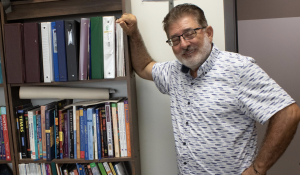Technology committee explains do’s and don’ts of social media
November 12, 2014
Sac State’s Academic Information Technology Committee encourages the use of social media, with a few guidelines.
To make sure that lecturers, staff members and students do not abuse their social media privileges, the AITC regulates the content. Committee Chair Ronald Coleman says the guidelines were issued to help students understand the appropriate use of social media sites like Facebook and Twitter.
“There are very specific rules about what information you can give out and what information you can’t, and students…might not be aware that they can’t do these things – that this is a violation of federal laws,” Coleman said.
Coleman said that while the guidelines were implemented to protect the privacy rights of students, instructors are also advised about what content to post.
“They can not distribute certain classes of information. For instance, they can’t put your grades on a Facebook page, that’s a violation of your rights as a student,” Coleman said. “There are other more subtle things that they need to know they can’t do.”
The AITC lists specific guidelines for University departments, programs and colleges:
Prior to launching your new social media page(s), notify [email protected] of your plans. This will allow us to assist by including this content on relevant University pages.
Use a department email account. Do not use a personal email account.
A manager or director must approve and have access to all social media content.
Follow the Style Guide when customizing any page that contains official University information.
Name your page appropriately
And a list of more general guidelines for students and instructors:
Be professional. As an administrator of a University-related social media site, you are representing Sacramento State. As such, anything you post will reflect on the University. Therefore, always use civil language and appropriate images. And, please, check your spelling, punctuation and grammar.
Be careful. Remember that social media sites are public and despite their seemingly fleeting nature – permanent. Once words or images are posted, they are impossible to completely retrieve. Think before you post and, when in doubt, leave it out.
Be courteous. Respond to questions and comments politely and promptly. Do not be drawn into arguments or heated debates.
Be fun. Use conversational and engaging language. Invite questions and comments. Use humor, but judiciously — everyone thinks they are funny, but not everyone is.
In addition to regulating social media, the committee is responsible for troubleshooting any issues with technology on campus, including classroom computers, projectors and online resources like SacCT.


























































































































